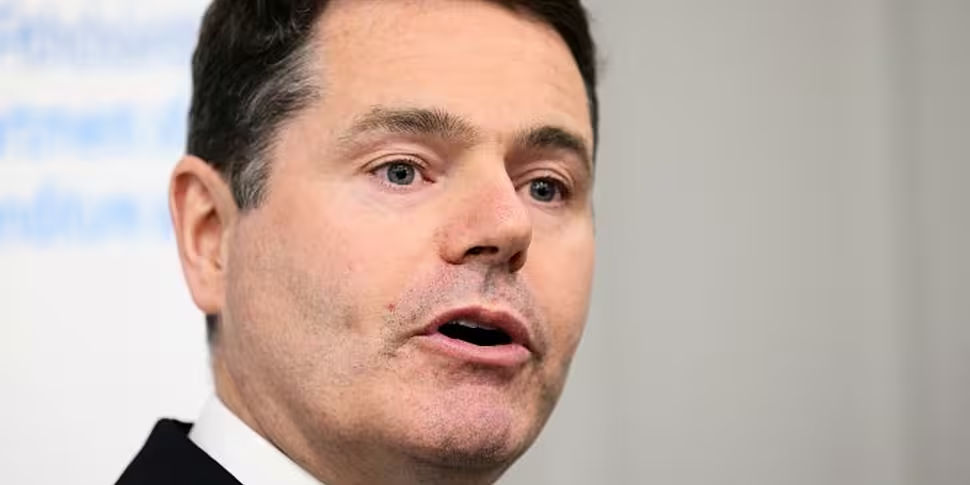The Minister for Finance has released the first details of what can be expected in next year’s budget.
The Summer Economic Statement outlines the general state of play ahead of the budget – including projections for growth in the economy and the numbers of people currently at work.
The 2018 Budget itself will not be announced for another three months – however today’s statement provides a snapshot of what can be expected.
Balance the books
Announcing the statement this afternoon Minister Donohoe said the government is aiming to “balance the books” in 2018 by implementing budgetary policies aimed at “ensuring stability.”
He pledged to increase capital spending by €500m a year starting in 2019 – adding that the government is required to continue reducing the national debt to achieve a debt to GDP (Gross Domestic Product) ratio of 60%.
“Fiscal space”
Arguably the crucial part of the statement is the level of so-called “fiscal space” available – the funding the government has available to spend on new measures.
The statement estimates the fiscal space at around €1.2bn – however just over half of that has already been committed to measures announced last year.
That leaves just €500m available - and a lot of that will already have to be set aside for the proposed new public sector pay deal.
Cutbacks will likely be needed elsewhere in order to fund any new spending - or any potential tax cuts.
Minister Donohoe said the economy is “growing at a healthy pace and generating jobs-rich growth.”
“Indeed, we are now approaching a situation in which jobs are available for all those who want them.
“Now is the time to build on the gains of recent years, to improve the resilience of the economy and to address the capacity constraints that are emerging.”
Rainy day fund
One of the main bones of contention following the announcement will be the decision to reduce the amount set aside for the ‘rainy day fund’ – a savings buffer to be made available in case public finances hit another difficult period in the future.
Minister Donohoe confirmed the government will begin committing €500m to the fund from 2019 onward – half the amount that was originally promised.
The extra €500m will now be used to fund capital spending projects.
The minister said the reduced savings reflected the changed economic circumstances – insisting it is important to strike the correct balance:
“This is a different level of contribution than was originally planned and we are making this different level of contribution in an understanding of some of the additional needs that we are now facing,” he said.
“We have to ensure that as we allocate this funding; it is going into projects that make long-term economic value for our country.”
Confidence and supply arrangement
The decision to reduce the amount in the rainy day fund could yet cause tensions between Fianna Fáil and Fine Gael.
Speaking earlier, Fianna Fáil finance spokesperson Michael McGrath warned that the fund is a deal-breaker in terms of the confidence and supply arrangement which is propping up the government.
“We will be insisting that it be honoured and in a meaningful way, not just a tokenistic contribution into it,” he said.
“It has to be meaningful. It is there really as a buffer; there as a safeguard to help the economy in the event of a downturn so that the first thing we don’t have to do if that happens is increase taxes and cut spending.”
Folly and recklessness
Following the announcement, Sinn Féin said the statement shows the “folly and recklessness” of both Fine Gael and Fianna Fáil.
The party’s spokesperson on public expenditure and reform David Cullinane warned that the “last rainy day fund was spent not on the people, but the banks and developers.”
"The €500m a year that the Government is putting into the next bailout fund for bankers and developers would be better spent on tackling the trolley and housing crises,” he said.
"Yet Minister Donohoe is happy to let €500m sit in a bank account literally doing nothing [rather] than put those funds to work.
The Workers' Party condemned the "extraordinary delusion" of the statement, which they said “forecasts strong economic growth while ignoring predictions that homelessness will grow.”
People Before Profit meanwhile said the spending plans were “totally pitiful” in the face of the “housing emergency, health crisis and the enormous infrastructure and public service deficit.”
Additional reporting from Gavan Reilly ...









